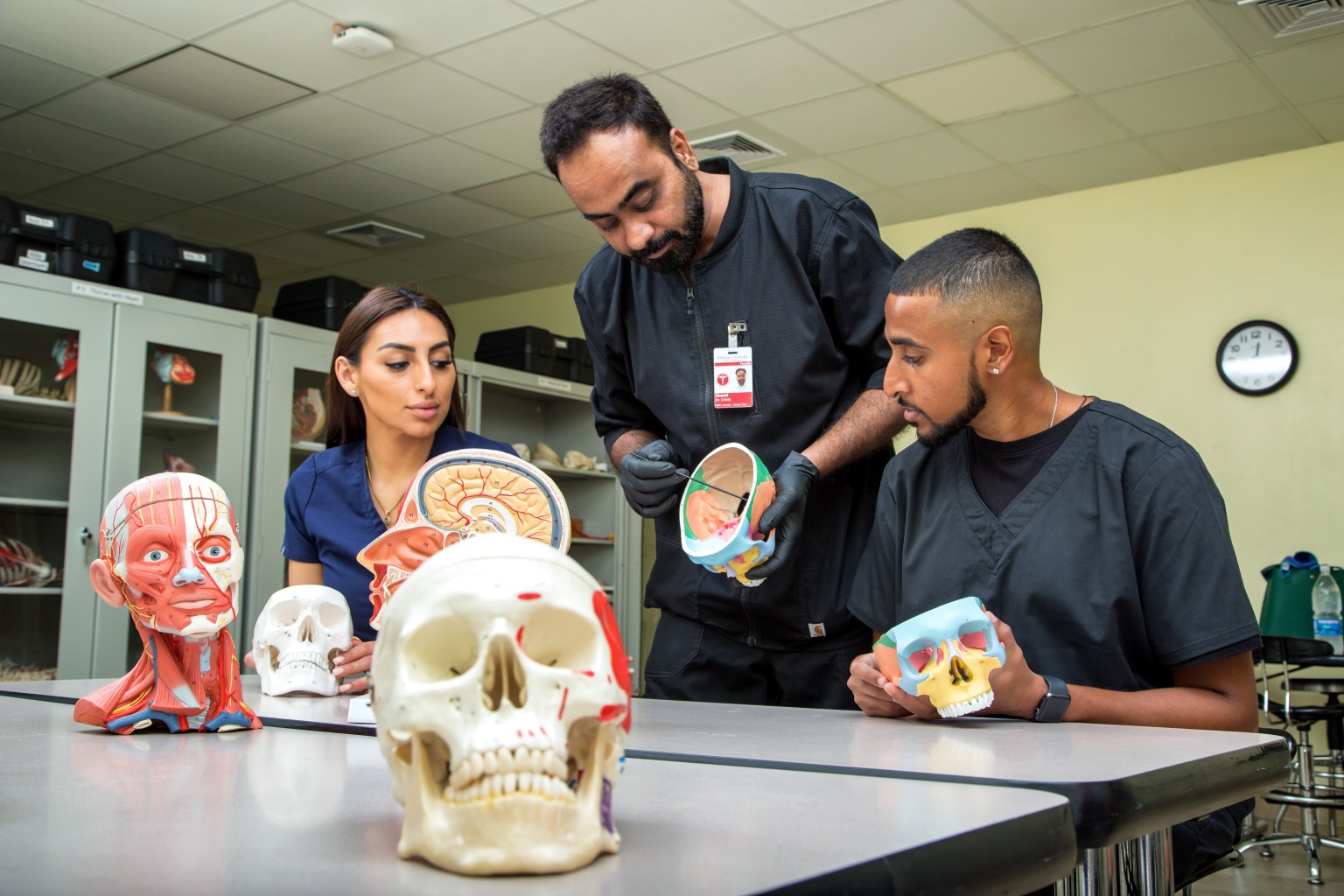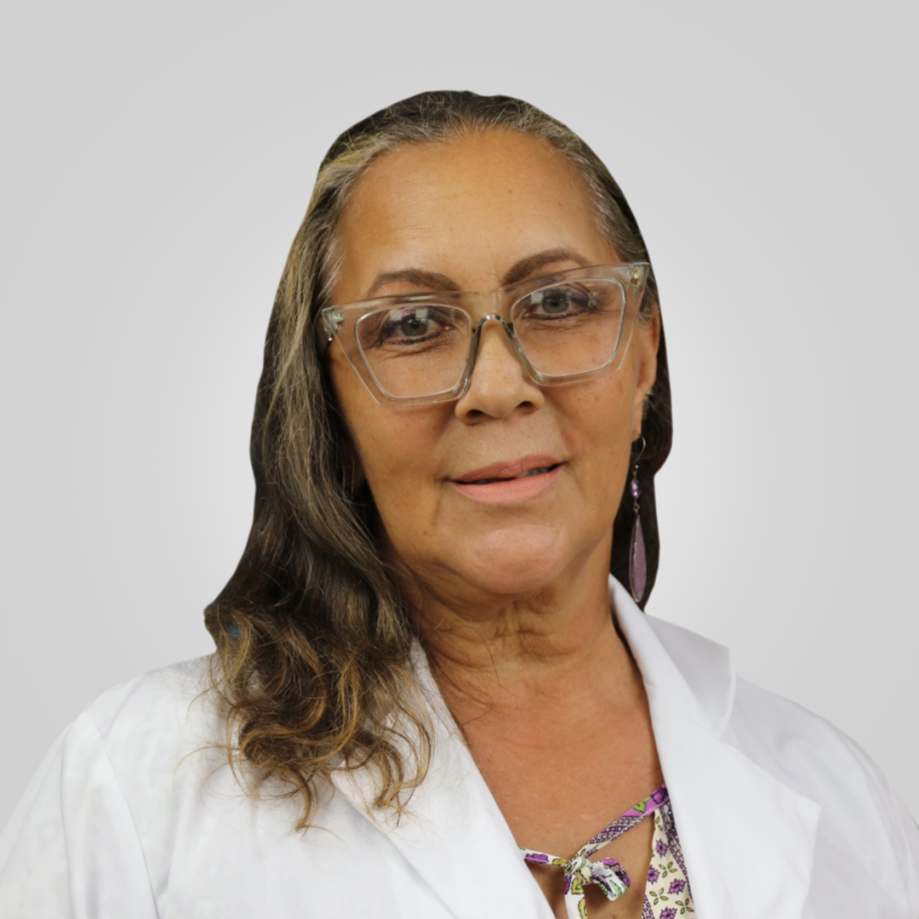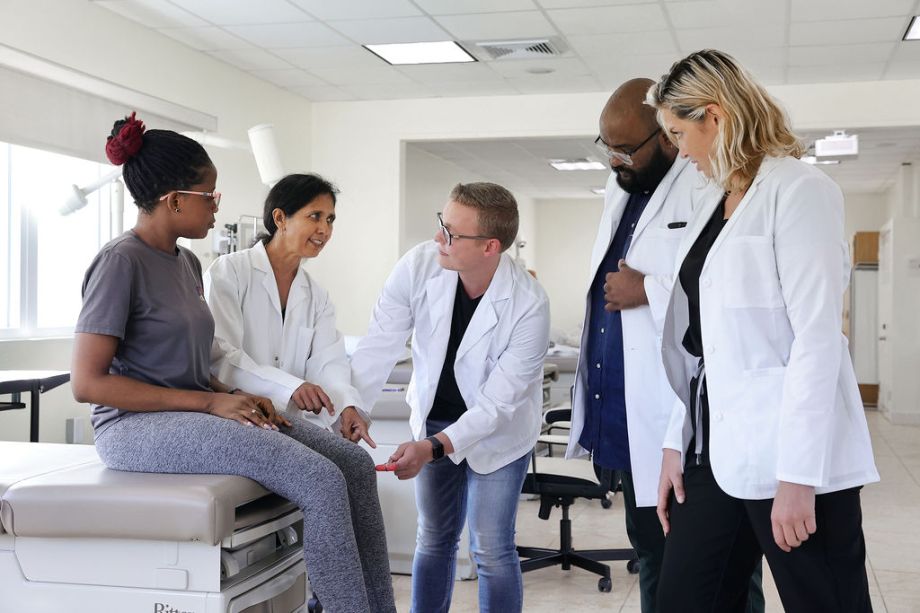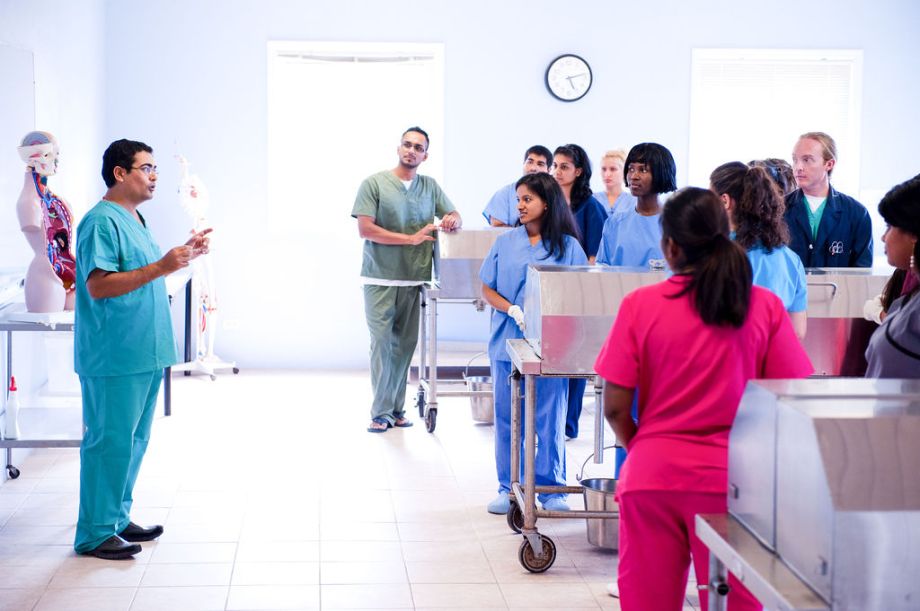
How to Get into an MD Program Without a Pre-Med Degree
Discover options for aspiring physicians who have not completed an undergraduate degree in a medicine-focused program.
Medical school prerequisites and the various pathways to pursuing a medical degree are common areas of confusion for prospective students.
While there are some medical schools without prerequisites, traditional pre-med course requirements include core sciences, mathematics, English, and behavioral and social sciences. Prospective medical school attendees also usually choose to major in a science or health-related field, such as biology, public health or psychology.
In this blog post, we will explore the challenges nontraditional medical school applicants face and how to pursue an alternative pathway to medical school.
What Are the Common Prerequisites for Medical School?
Medical prerequisite courses provide a solid knowledge base, critical thinking skills and important preparation for the Medical College Admission Test (MCAT). Prerequisites for medical school also provide essential time management skills, preparing students for a demanding environment.
Most medical schools require students to complete prerequisites so they have the knowledge needed to succeed in medical school, which is a demanding academic environment from early-on. While there are some medical schools without prerequisites, it is still essential for future physicians to be ready for the demands of medical school so they can progress successfully toward their desired career.
Prerequisites in biology and chemistry aim to build a scientific foundation, with most medical schools requiring two semesters of each with accompanying lab experience. Medical schools also commonly require physics with lab experience along with mathematics or statistics, English and social sciences, such as sociology and psychology.
It’s important to note the difference between required and recommended prerequisite courses. While required courses can be mandatory in order to even apply, recommended courses are encouraged in order to strengthen your application to medical school and demonstrate valuable skills. However, you may be able to gain acceptance without them.
It is important to obtain the most current prerequisite information from each school you’re interested in by checking the Doctor of Medicine (MD) program admissions requirements.
Alternative Pathways to Medical School
While the traditional route to becoming a doctor is pursuing a pre-med undergraduate degree before taking the MCAT exam (for U.S. students) and applying to medical school, there are alternative pathways to earning an MD degree.
Those who didn’t take pre-med courses during college or want to improve their GPA to strengthen their medical school application can pursue a post-baccalaureate program. These programs help students meet the medical school prerequisites and typically last one to two years.
Some medical schools also offer their own pre-med programs, providing alternative gateways to a medical degree. For one example, the MUA Pre-Med Master’s Program is an eight month program that offers an MSc in Biological Science and direct-entry into the MD program. This is perfect for those with an undergraduate-level degree and some foundational science coursework.

The advice that I would give to incoming students, particularly pre-medical students, would be to prepare yourself for an amazing experience and be open-minded to the process in the educational programs that we offer.
Dean of Pre-Medical Sciences and Assistant Professor
If you do not have an undergraduate degree or lack science-coursework entirely, other options include the 5-Year BSc/MD Program and the 6-Year BSc/MD Program. Those who successfully complete one of these pathways earn both Bachelor of Science (BSc) in Biomedical Science degree and a Doctor of Medicine (MD) degree.
How to Strengthen Your MD Program Application
As a nontraditional student, meaning you have not completed an undergraduate degree in a medical or science-focused subject, it is crucial to play to your strengths when preparing a medical school application.
Here are three ways to strengthen your MD application as a nontraditional applicant:
- Prepare for the MCAT: Review core science content thoroughly and use structured prep materials. A strong MCAT score can demonstrate academic readiness and lay a platform for success throughout an MD program. Please note, MUA is among the medical schools without MCAT requirements for Canadian and international applicants. Only U.S. students are required to submit their MCAT scores.
- Write a strong personal statement: This is your opportunity to tell your story. Highlight your path to medicine, what you’ve learned and how your experiences have prepared you for a successful career as a practicing physician. At MUA, the maximum word-count for a personal statement is 500 words.
- Gain relevant clinical and research experience: Experience is key. Shadow doctors, volunteer in healthcare settings or pursue health-related internships. Those with working experience in the field of medicine, such as EMTs, also make good applicants. These experiences show your commitment to care and help you develop valuable knowledge and skills.
Navigating the Application Process
Once you have decided that you want to pursue a medical degree, it’s essential to learn how to apply. The medical school application process requires students to submit a personal statement, academic transcripts, MCAT scores (U.S. students) and letters of recommendation.
Here are a few important factors to consider before applying to medical school:
Understanding the timeline
Preparing well in advance of when you plan to apply to medical school is recommended. This includes taking the MCAT, securing letters of recommendation, pursuing volunteer experience or internships, and preparing application documents.
Utilizing AMCAS, AACOMAS, TMDSAS and OMSAS
Medical school applications are typically submitted via AMCAS, a centralized database used by medical schools throughout the U.S, as well as similar services such as AACOMAS, TMDSAS and OMSAS. Through AMCAS, you’ll submit your primary application, which includes your personal statement, coursework history, MCAT scores, work and activities section, and letters of recommendation.
As an international medical school, MUA is not associated with these shared U.S. and Canadian services, but to support your application efforts, you are able to submit a copy of such an application to MUA. Learn more.
Interview preparation tips
Most medical schools, including MUA, require potential students to take part in an admissions interview before a decision is made about your application. While there are some medical schools without interview requirements, students should research and understand such requirements before applying.
In an interview, be prepared to answer common admissions questions (which can be found online) and discuss your unique experiences confidently and succinctly. Mock interviews and feedback from loved ones can help you prepare effectively and thrive during medical school interviews.
Take the Next Step Toward Your MD Degree at MUA
Have you ever considered studying medicine in the Caribbean? With more than 25 years of medical education experience, Medical University of the Americas (MUA) offers comprehensive education at accessible costs. Our MD program is accredited by the ACCM and our graduates practice medicine in the U.S., Canada and internationally.
MUA’s flexible start dates, individualized support services, dedicated faculty and key U.S. state approvals attract both traditional and nontraditional applicants. Our extensive range of programs, from a Pre-Medical Master’s Program to a 4-Year MD Program, support diverse students who aspire to become practicing physicians and healthcare leaders.
Learn more about student life in Basic Science on Nevis in this MD student testimonial:
Please contact us if you have any questions or get started today by exploring how to apply!
FAQs About Medical School Admissions
While those in biological sciences are the most popular pre-med majors due to their strong relation to medical studies, most medical schools accept a major in any field as long as the student completes the prerequisite courses and submits a strong application.
Students with a bachelor’s degree in a pre-med or science-based subject are strong applicants for medical school. Students with a bachelor’s degree in any subject who have completed the required prerequisite coursework are also able to apply. However, students with a bachelor’s degree who have not completed the science-based coursework may need to enhance their eligibility in a pre-med program.
At least some pre-med preparation and coursework is usually required for accredited MD programs. This can be a science-based undergraduate degree, completing the required undergraduate prerequisite coursework only or completing a pre-med focused program. It is important to develop a strong scientific foundation, especially in biology and chemistry, throughout high school and college in order to achieve success in medical school.
Generally speaking, the fastest path to medical school is completing a bachelor’s degree in three years while fulfilling all prerequisite courses, gaining clinical experience and taking the MCAT (U.S. students only). Specific to MUA, the 6-Year BSc/MD program allows secondary graduates to enter medical school directly and bypass 3-4 years of undergraduate studies.



